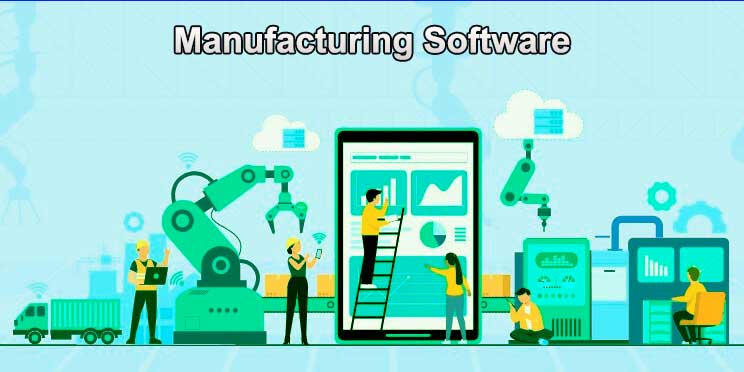In the fast-paced world of manufacturing, optimizing operations, increasing efficiency, and reducing costs are top priorities for companies. Manufacturers are continually seeking ways to streamline their processes, enhance productivity, and remain competitive.

One solution that has gained significant traction is the use of manufacturing software. This article delves into the realm of manufacturing software, exploring its features, benefits, and the transformative impact it can have on your production processes.
Understanding Manufacturing Software
What Is Manufacturing Software?
Manufacturing software is a category of computer programs designed to assist businesses in managing and controlling their production operations. It covers various aspects of the manufacturing process, from inventory management and production scheduling to quality control and supply chain management. This software is instrumental in optimizing manufacturing operations, reducing errors, and ensuring the efficient use of resources.
The Evolution of Manufacturing Software
Manufacturing software has evolved significantly since its inception. It has transitioned from simple computer-aided design (CAD) and computer-aided manufacturing (CAM) tools to comprehensive systems that offer end-to-end solutions for manufacturers.
Key Features of Manufacturing Software
Production Planning and Scheduling
One of the primary features of manufacturing software is its capability to plan and schedule production efficiently. This includes managing production orders, allocating resources, and optimizing workflows to meet demand.
Inventory Management
Manufacturing software helps in tracking and managing inventory, ensuring that raw materials and finished products are available when needed. This minimizes excess inventory and reduces carrying costs.
Quality Control
Quality control modules within manufacturing software enable manufacturers to maintain high product standards. This includes monitoring product quality at every stage of the production process.
Supply Chain Management
Manufacturing software often includes supply chain management features, helping businesses optimize their procurement processes, reduce lead times, and improve supplier relationships.
The Benefits of Implementing Manufacturing Software
Enhanced Efficiency
By automating and optimizing various production processes, manufacturing software significantly improves efficiency. It reduces manual work and minimizes production errors.
Cost Reduction
Effective inventory management, production planning, and resource allocation lead to cost reductions. Manufacturers can minimize waste and save on operational expenses.
Improved Decision-Making
Manufacturing software provides real-time data and insights, allowing businesses to make informed decisions quickly. This is especially vital in the competitive manufacturing landscape.
Scalability
Manufacturing software solutions are scalable, making them suitable for businesses of all sizes. Whether you’re a small manufacturer or a large industrial operation, the software can adapt to your needs.
Implementing Manufacturing Software in Your Operations
Vendor Selection
Selecting the right manufacturing software vendor is a critical decision. It’s essential to choose a vendor with a strong track record, excellent customer support, and a software solution that aligns with your manufacturing processes.
Employee Training
Proper training for your employees is essential for a smooth transition to manufacturing software. This ensures that your team can harness the system’s capabilities effectively.
Data Migration
If you’re transitioning from legacy systems to manufacturing software, data migration must be carefully planned and executed to prevent data loss or corruption.
Conclusion
Manufacturing software is a transformative tool for manufacturers, offering enhanced efficiency, cost reduction, and improved decision-making. To stay competitive in today’s dynamic manufacturing environment, consider implementing manufacturing software in your production processes. It has the potential to revolutionize how you manage your resources, streamline your operations, and ultimately contribute to your manufacturing success.
FAQs
- Is manufacturing software suitable for small businesses?
- Yes, manufacturing software is highly adaptable and can be customized to meet the specific needs of small manufacturing enterprises.
- How long does it take to implement manufacturing software in a manufacturing operation?
- Implementation timelines vary depending on the complexity of the manufacturing processes, but it often takes a few months to ensure a smooth transition.
- Is it necessary to integrate manufacturing software with other systems like ERP or CRM?
- Integration can enhance the functionality of manufacturing software and provide a more comprehensive view of your operations. It’s beneficial but not mandatory.
- What are the typical costs associated with implementing manufacturing software?
- Costs vary based on factors such as the size of your operation and the specific software you choose. It’s advisable to get quotes from potential vendors.
- Can manufacturing software be used in industries other than traditional manufacturing?
- While designed for manufacturing, some features of manufacturing software can be adapted for use in other industries where resource planning and inventory management are essential.